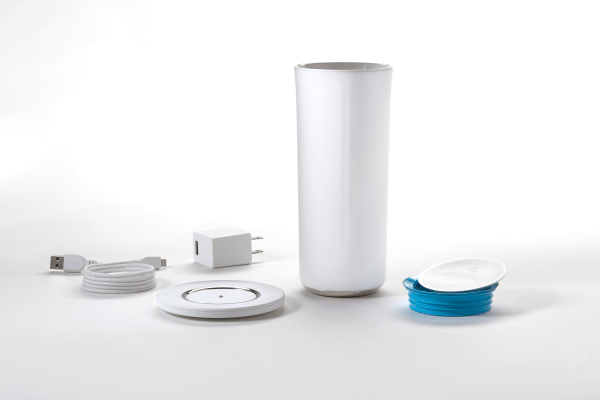Remember the time I tried out that Pryme Vessel smart cup to track my water intake and hydration? Remember how the Bluetooth connectivity was terrible, and I had to reset the cup several times a day before I finally gave up with the cup altogether? Well, the company behind that product, Mark One, has raised an additional $4 million from Intel Capital, which first invested in Mark One last June as part of its diversity fund, as well as other investors. Update: An earlier version of this story did not mention the additional investors in the $4 million round.
“As to the additional funding, it’s common for Intel Capital to participate in follow-on rounds to help our portfolio investments bridge to the next level of success,” an Intel Capital spokesperson told TechCrunch. “And of course, besides funding, we offer introductions to Intel scientists, customers and partners all over the world.”
Mark One uses Intel’s Curie hardware module, a low-power solution equipped with motion sensors, battery charging and pattern matching capabilities to analyze the data from sensors. That’s what makes it possible for Mark One to identify certain actions and motions, such as lifting up the cup to drink fluids.
I would imagine that “next level of success” Intel Capital is talking about is functionality. According to Mark One CEO Alan Johnson, who joined the company less than a week ago, the additional funding will help the company fix the connectivity and reliability issues with the product. Meanwhile, Mark One is currently developing version two of the Pryme cup, which will be more “industrial strength.”
Johnson, who previously served as CEO of BevMo, told me he wanted to make sure his next move was to a “disruptor with a powerful vision” and “if able to execute, would leave a dent on the earth’s surface.”
The “if able to execute” part is key because Mark One has not been able to execute on much. Last August, a couple of months after Mark One closed a $3 million seed round, the company notified its early backers in October that it decided to delay the launch date of the Vessyl. The original Vessyl was supposed to track liquid consumption throughout the day to monitor your overall nutrition, and tell the difference between sodas, water, orange juice and other liquids. The target date was sometime in 2015, but that didn’t happen.
So, Mark One launched a different cup called Pryme, which just tracked water and hydration, in November 2015. As a consolation to the early backers in Mark One who collectively contributed $4 million to the company, Mark One sent them a free Pryme cup — the one with all the connectivity issues. The Vessyl cup that was originally marketed to consumers is still in the product pipeline, but there’s no word on when it will actually be finished. Eventually, under the leadership of Johnson, Mark One sees itself reaching north of one billion dollars in sales.
